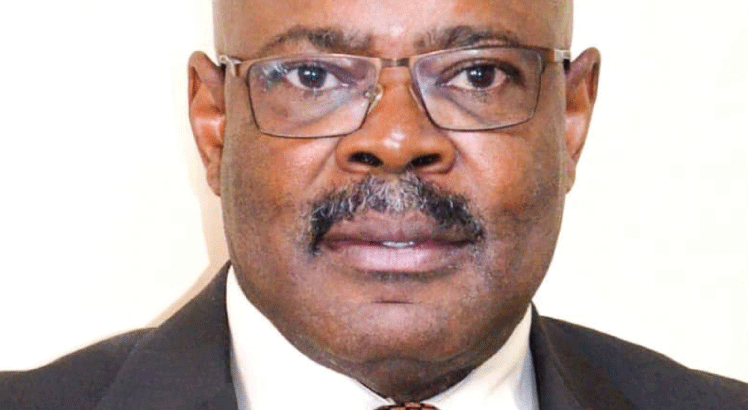Northern Region Water Board (NRWB) chief executive officer TITUS MTEGHA has retired after 26 years at the helm of the board. Arguably, Mtegha has been the longest-serving parastatal CEO. Our Staff Writer EDWIN NYIRONGO talked to him to find out how his years of service have been. Excerpts:
Mtegha: It has not been easy
Q
How does it feel leaving the board after so many years?
A
I feel satisfied and proud having joined to set up the board from scratch in 1996. I am happy to have seen it grow to where it is now, where it has expanded and reached out to more people in all corners of the Northern Region, with a sustainable and reliable potable water supply. On the other hand, it is a very sad moment to leave the Kawiluwilu team. We created a passionate family, eager to serve.
Q
Have you been pushed out or you, indeed, wanted to retire?
A
Having been at the helm of the board for the past 26 years, it was time for me to leave the stage and let others continue with the journey. I chose to retire and rest.
Q
What has been your secret to serve for such a long time?
A
My secret has been a simple one. Working with professionalism at all times and aligning the board to successfully deliver on the development agenda of government of the day. I also ensured that I discharged my duties in strict adherence to the policies and laws of the land.
Q
But there are speculations that you stayed that long because you had the backing of the Germans who forced the Government of Malawi to continue keeping you?
A
No. That is not true. I believe it is my performance as CEO of NRWB which made my employer, the board of directors, satisfied and, consequently, continued renewing my contract for 26 years. The results of my performance are visible and recognised both here in Malawi and beyond. NRWB won a number of awards. For example, locally, in 2016, it won the award as one of the best performing public institutions by the Chartered Institute of Customer Management. Internationally, in 2019, NRWB won the prestigious $200 000 Prince Talal International Award for successfully implementing the Mzimba Integrated Urban Water Supply and Sanitation Project. The award, which was presented by AGFUND, NRWB was nominated by the Opec Fund and supported by the African Development Bank.
Q
What are some of your achievements at NRWB?
A
Firstly, I have been able to grow the board from ground up. When I started as CEO, coverage was around 50 percent. Now coverage has increased to over 90 percent. The board is now reaching more areas and more people with potable water. Secondly, water supply reliability, where customers have more hours of reliable water supply, up to 20 hours a day on average. I have facilitated capacity-building of our staff and created partnerships with other utilities within the Southern African Development Community region, which has increased the level of knowledge sharing, including sharing of best practices. As I am speaking, two of our engineers are being seconded to work for a year at a water utility in South Africa.
Q
But some residents, especially in Mzuzu, complain about dry taps. Is this one of your lows at the board?
A
Generally, water supply in Mzuzu is good now. Customers experience challenges here and there when there are technical faults, but supply has tremendously improved. The board has invested in additional storage capacity as well as alternative power source, which has greatly improved the water supply situation.
Q
What do you say to suggestions that NRWB should be disbanded to create Mzuzu Water Board and Northern Region Water Board for efficiency?
A
Not at this stage. The customer base in the Northern Region is still too low to warrant creation of another utility. The creation would just be increasing overhead costs which, in turn, would burden the customers with high water bills. Improving efficiency is not about creating another utility, but rather focusing on improving the internal processes and other bottlenecks affecting water supply.
Q
How was it working under different governments?
A
It has not been easy. Each of the six governments that I have worked for had its own agenda as regards water supply. So, it has been a challenge to understand and align to each government’s agenda. We have had governments that did not prioritise the water sector at a time when we needed more investment to improve water supply. However, the current government places high priority on water and sanitation and we have seen the creation of a full Ministry of Water and Sanitation. This is commendable. I also faced situations whereby politicians tried to interfere with operations of the board and when I stood firm, I was labelled an agent of political party X, political party Y and so forth. To that effect, I have been labelled as an agent of almost all the political parties that have ruled this country. Yet for me, it has always been working for the government of the day and being professional at all times.
Q
What needs to be done to revamp water boards in the country?
A
They need a sustainable tariff model which will help them raise enough resources to sustain supply. The current tariff regime is slowly and painfully killing the water boards. They are still low compared to the production cost of water. If not careful, the boards will collapse at some point and may need heavy bailouts. Serious and deliberate investment in new water sources is needed. The sector still requires huge investment to sustain supply. Government needs to play a key role in all this.
Q
Are there things you could have done better at NRWB?
A
One of the things is the realisation that we needed to invest in alternative power source to improve water supply reliability across our supply areas. I wish we had started this years ago. The board would have been somewhere by now. Secondly, the improvement of customer experience through investments in technology and innovations that makes a customer’s life easier to access and interact with our services.
Q
Your parting shot?
A
I can only urge fellow Malawians to support the water boards in their quest to improve water supply. One of the best ways to do that is to develop a culture of paying bills without being forced with a disconnection notice. We need to understand that it takes a lot of resources to produce, supply and sustain potable water services. n
The post ‘Not easy working under different governments appeared first on The Nation Online.
 Moni Malawi
Moni Malawi 

